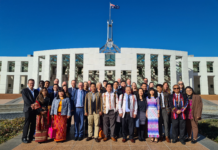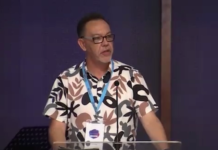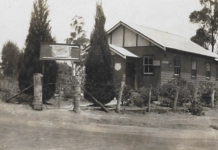
There is nothing like a great rivalry. There are the great sporting rivalries. NSW vs. Queensland in Rugby league; the Diamonds vs. the Silver Ferns in Netball or perhaps the Wallabies vs. the All Blacks in Rugby Union.
There are technology rivalries; the PC vs. Mac lovers, or for the more mature of age among us maybe its VHS vs. Betamax. There are arts and crafts rivalries; knitting vs. crocheting, plastering vs. ceramics or the pastel vs. oil painters. These rivalries excite us, as clearly defined boundaries inspire us to commit to sides, tribes or ideas.
Then there are rivalries that simply should not exist, rivalries that don’t make sense. If you want to get a sense of this kind of rivalry you could visit the online sports forum, “the Bleacher Report” where you can find the story entitled “the 25 Craziest Team Mate Fights Ever.“ You will find images of teams locked in unnecessary acts of self -destruction. People on the same team need to be supporting each other, championing one another’s cause and celebrating each other’s contribution not turning on one another.
As I travel in my role with Global Interaction within NSW and ACT I have witnessed first hand a rivalry of this dysfunctional kind. In most cases it is between two people or parties committed to the same thing – mission. However one person is committed to local mission and the other person is committed to global mission. It is the “local vs. global mission” stoush. The trigger for the stoush is usually resources; people and money – we have a limited pie so let’s use it well. The end result is often ugly.
Here are two caricatures of “the local vs. global stoush” in churches.
The first picture is the church that focuses in our local mission to the exclusion of everything else. It does a great job at connecting with its local community, sharing the good news, serving its people, providing programs. This church has a commitment to excellence, builds great buildings, nurtures effective ministry teams but can at times hoard these resources for themselves. No expense is spared on ministry right where they are. There is little sharing in God’s heart for the nations, there is little ministry empowered in people from communities not of their own, few, if any people are ever raised up and sent out. If a church only does local mission it has a limited experience of the reconciling power of God – a God who not only reconciles people like us to himself, but people of every tribe, nation and tongue. The gospel is a personal invitation from an intimate and personal God, however, it is also an epic, globally reaching, declaration of good news from the God of all nations.
The second picture is the church that champions Global mission at the expense of other mission. It supports cross cultural workers in innovative, risk taking gospel ministry over-seas but if risky mission ventures are suggested locally they are shot down before they get a chance. It values crossing cultures, borders and oceans to share the good news of Jesus, but places less value on crossing cultures down the street. It celebrates sharing the good news in other countries but makes little effort on sharing the good news with people from their own culture. It champions cross cultural workers as they learn language, study culture, so they share the gospel in culturally meaningful ways; but struggles to study their own culture, and make shifts and changes to be more adept at operating in their own neighbourhood.
It seems here that our quest to be “mission shaped” needs to be informed by our other core value of being “Christ centred.” Being Christ centred means that making our decisions about our mission priorities is not simply an exercise in dividing up a pie graph of our churches finances, or an audit of our people resources. Surely it begins by looking to Jesus, praying to the Lord who knows that the harvest is plentiful but the workers are few.
A cursory glance at Jesus in the two-part epic we know as Luke –Acts reveals to us that the local vs. Global mission stoush is a distortion of the churches identity and calling. To be mission shaped is to understand that Jesus believes that mission is everywhere. Luke begins his story on a world stage with a baby born in the days Caesar Augustus. It then spins centripetally through Galilee, then Samaria, then Judea and finally arriving in Jerusalem. There we reach the centre of all things. There the events are retold as if in slow motion, underlining their status as of the utmost significance. Jesus is crucified. Jesus is risen. Death and sin is defeated. The door way to forgiveness is thrown open. Jesus’ people are commissioned to go into all nations. Then the story begins to spin again. This time the motion is centrifugal. The gospel spins out person by person, family by family, region by region through Jerusalem, Judea, Samaria, and to the ends of the earth. Aramaic speaking Jews are included, Greek speaking Jews join the family, half caste Samaritans are invited in and even finally totally pagan Gentiles find out they can belong to the family of God’s people. All this began with a small group of people with meagre resources but an amazing Lord – called to make a difference locally, regionally, nationally and globally.
Our family, our friends, our enemies, our schools, our work places, our universities, or soccer clubs and our chess clubs are our local mission. They all need missionally switched on, Christ centred believers ready to give an answer for the hope we have in him. Here is as much our mission field and there. Our mission is local, as the luminary missionary CT Studd has said, “The Light that shines furthest shines brightest at home”.
However our mission is also global. As long as 86% of Buddhists, Hindu’s and Muslims never meet a follower of Jesus in their lives and thousands of the worlds people groups remain unreached we must remain committed to proclaiming the Lordship of Christ to our globe. (Lausanne Congress 2010). There is still a vital place for churches like yours and mine to pray, to give, to understand the needs of our world, and to raise up cross cultural workers to go in to all of God’s world. Our mission is Global.
To quote another luminary from our past Alan Webb who addresses the South Australian Baptist union in the 19th century,
“To be a Baptist means to be a supporter of world mission in the tradition of Carey. The single most unifying force among the diverse Baptists of the colonies was and is this missionary impulse…if Australia does not take a foremost position in the evangelisation of the world, she has failed to see why she has come into possession of her kingdom…”.
Put simply our mission is local and global not local verses global.




































